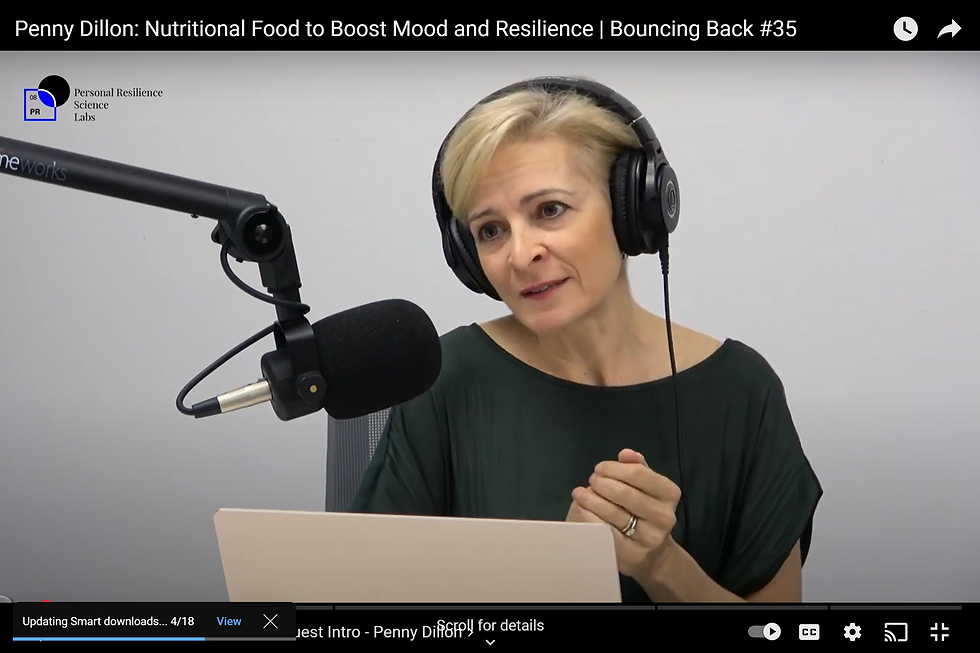Why do we actually need to sleep?
- Penny Dillon
- Aug 19, 2022
- 2 min read

Forget breakfast being the most important meal of the day. Sleep is the most important activity of the day! It not only gives us a break from physical activity but also mental and emotional activity, allowing us to recharge and reset for the next day. And it’s not just about how much you sleep (7-9 hours is good) but also your quality of sleep - especially deep and REM (rapid eye movement) sleep.
Deep sleep:
Boosts our immune system – which is why we can get sick after poor sleep
Powers up our energy for the next day
Repairs our muscles and cells (plus anything else which needs fixing)
Increases neuroplasticity (the brain’s ability to rewire itself and create new connections)
Reduces the risk of anxiety by restoring the prefrontal cortex
Allows us to growwwwww, especially kids and teens
REM:
Replenishes neurotransmitters such as serotonin – making us feel flat, sad or unmotivated after a bad night’s sleep
Consolidates what we’ve learnt during the day (if you study all day and don’t get enough REM that night, you’ll waste all of that learning!)
Shrinks our neural connections - whilst this may sound alarming it’s actually our brain’s way of avoiding ‘brain overload’ and creating space for us to learn more things the next day. Think of it like defragging a hard drive.
We cycle between deep sleep and REM during the night, with the best quality sleep happening after about 5 hours. It's therefore important to get at least 7 hours of shut-eye. However, up to half of us aren’t getting enough – so here’s some tips for a good night’s sleep:
Establish a bedtime routine – even if it’s just brushing your teeth directly before bed. The routine signals to your brain that it’s time to sleep
Don’t eat too late as eating raises your blood sugar, keeping you awake
Our body temperature drops when we sleep - so make sure your bedroom is relatively cool and your bed covering isn’t too warm (if you're too warm you’ll wake up).
Ditch the blue light (aka your phone/tablet/computer/tv) as it mimics daylight, signalling the brain that it’s 'wake time'. The good news is that e-readers such as Kindle use a yellow light which is OK.
If you need to go to the dunny in the middle of the night – try not to turn on the light as this will also tell the brain it’s ‘wake time’.
Need to talk to someone about food or your mood? Penny Dillon is a counsellor and nutritionist who's passionate about mood and food. Book an appointment.




Hi Penny, I've heard that sleep prior to midnight is better for you... is there any truth to that?